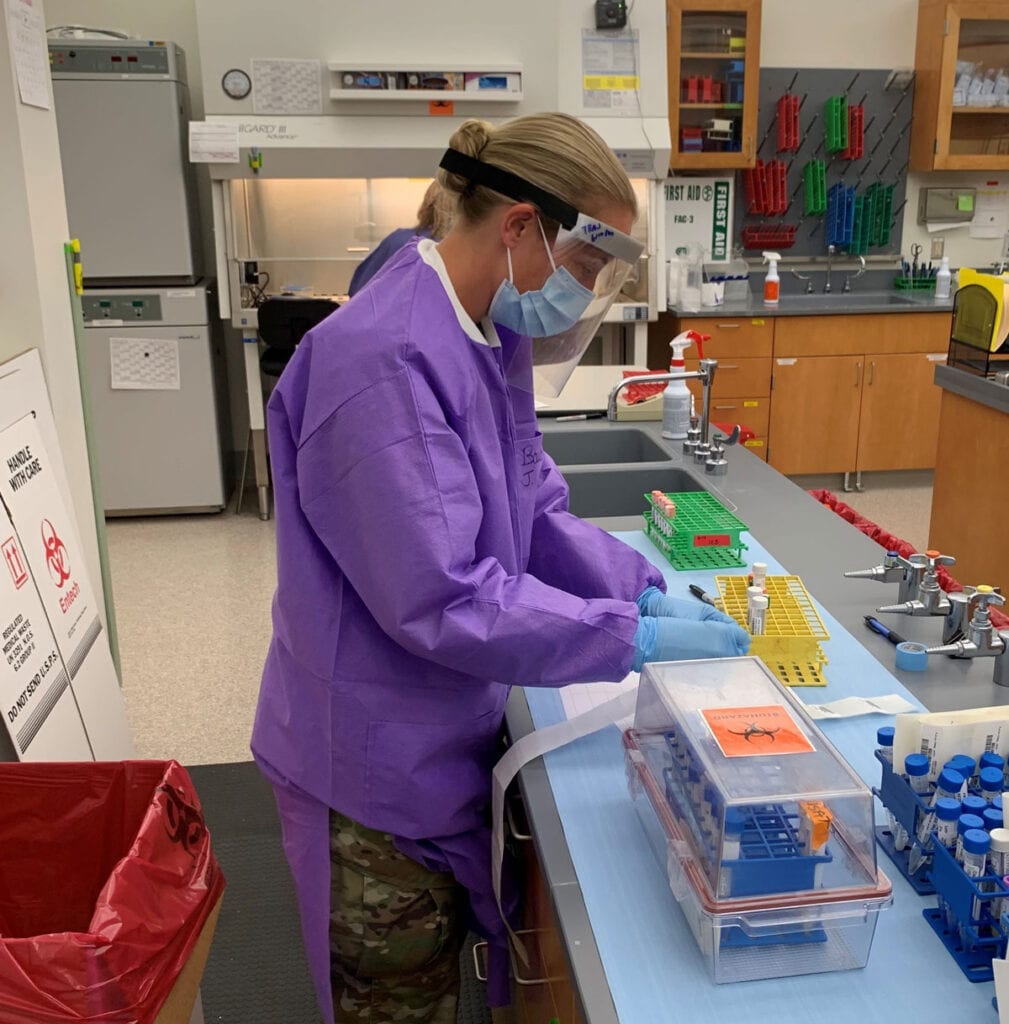From early June to mid-August, Alaska Air and Army National Guard members assigned to the 103rd Civil Support Team (CST) augmented the Alaska State Public Health laboratory by processing COVID-19 samples for testing.
CST members helped complete analysis on 11,426 samples over three weeks of testing.
Guardsmen in CST units have a specialized capability of responding to a chemical, biological, radiological, or nuclear (CBRN) incident. The servicemembers involved have completed the U.S. Army’s Analytical Lab Course, which re-enforces specific skill sets and techniques they’ve employed in the testing effort, like Polymerase Chain Reactions.
“I feel honored for our unit to have been considered for this important task,” said Capt Bowden, who specializes in medical operations for the 103rd CST and participated in the public health COVID-19 testing effort. “This mission is right in our wheelhouse. I’m grateful for the opportunity to work alongside and in support of the community.”

According to the U.S. Center for Disease Control, lab testing is a specialized skill. To be done effectively, it requires people with extensive training and supervision, along with requisite knowledge and skills pertinent to the lab environment.
Tran and Bowden were both recognized by the Rasmuson Foundation as “Unsung Heroes” for their work during the pandemic.
In addition to supporting the Analytical Laboratory System operator request by the state, which was coordinated through the State Emergency Operation Center, the CST testing personnel recently participated in their unit’s Terminal Proficiency Evaluation, which served as a validation for the unit on August 4, 2020.
This type of validation is done once every 18 to 24 months. The training, evaluated by an outside civil support team, replicated a notional scenario where an unknown biological hazard was present, with a request for the FBI’s assistance.
“Our team executed this validation with speed and precision, said Capt. Roger Tran, who works as the Nuclear Medical Science Officer for the 103rd CST. “It’s a testament to the collective attitude and work ethic of our unit as a whole.”


